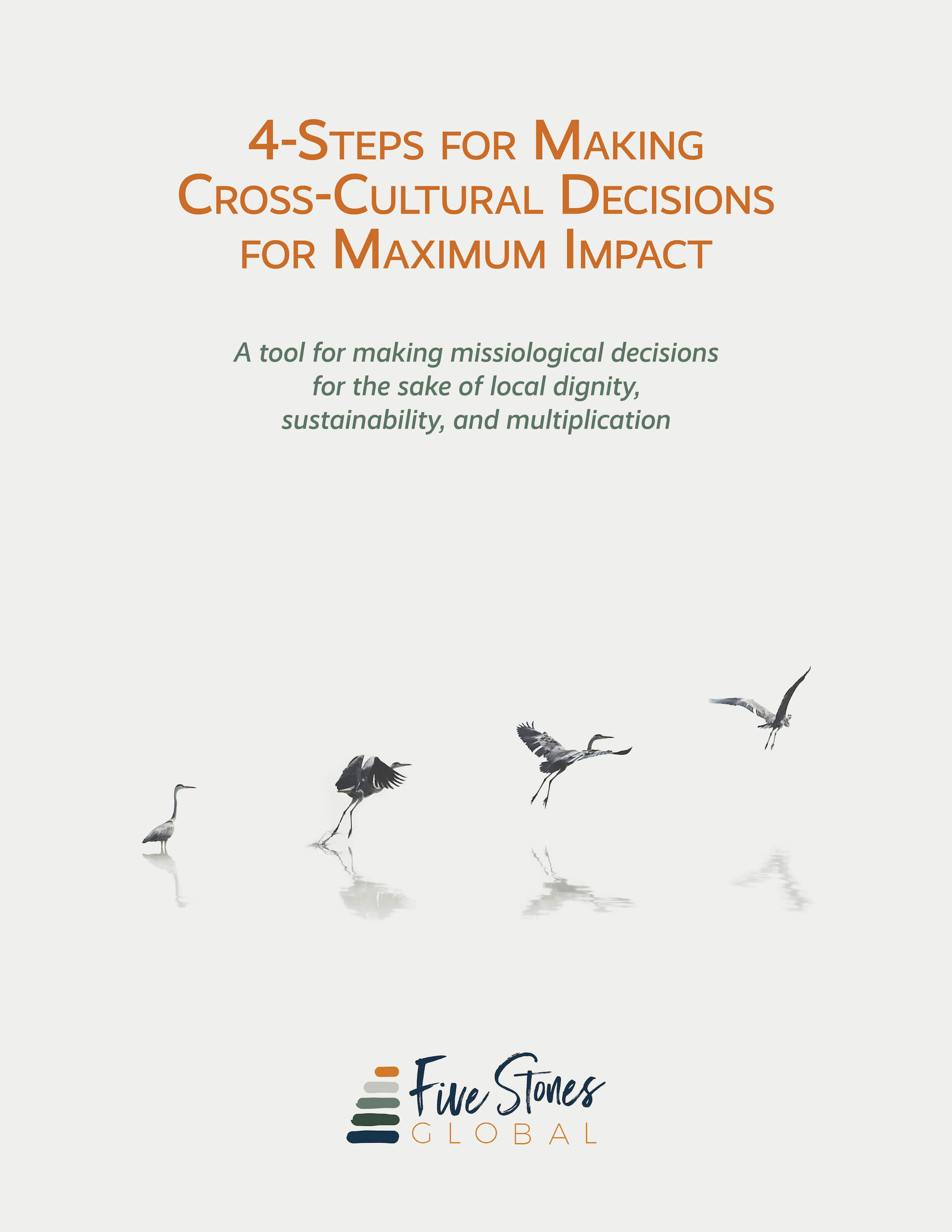Making Disciples in Oral Cultures:
They wanted . . . I gave them
How to shape your communication styles to work effectively in your cross-cultural setting.
It’s Not Working for Us, Jean!
“Why do you look troubled?” I asked the Cambodian church planting team. “What you taught us isn’t working; people are disengaged,” they exclaimed. They were referring to the style of communication used to share the gospel and make disciples. I had passed on what I learned in Bible school in America to them, such as preaching, explaining, reasoning, and teaching.
As we all hopped into a truck together, I asked the Lord, “What am I missing?”
Then, my heart said, Listen to how engaged and passionate they are in their communication.
How are they communicating? I questioned myself.
They are using proverbs, riddles, call-and-response songs, and stories, I processed.
When I arrived home, I grabbed all the materials I had developed in the Cambodian language through my learning styles, such as sermon outlines and teaching. I threw them into a cabinet and locked the door. It’s time for me to revisit my cross-cultural work, meaning I need to become a storyteller for the gospel in this specific worldview, I surmised.
It’s Not Working for Us, Tom!
Tom Steffen, a cross-cultural worker, learned about the reality and dynamics of different styles of communication through hard knock experience while he served as a missionary in the Philippines:Then I came into contact with the Ifugao of the Philippines who reintroduced me to story. They wanted stories; I gave them systematic theology. They wanted relationships; I gave them reason. They wanted a cast of characters; I gave them categories of convenience. They wanted explorations; I gave them explanations. They wanted descriptions; I gave them definitions. They wanted stories; I gave them statements. The Ifugao challenged my take-it-for-granted understanding of the way people learn, and forced me to reconsider the pedagogical “story” I had unconsciously accepted and biased.1
Now It’s Working!
From reading Steffen’s comments alone, we can already recognize some distinct differences between oral-based learners and text-based learners:
They wanted stories
They wanted relationships
They wanted a cast of characters
They wanted explorations
They wanted descriptions
They wanted stories
I gave them systematic theology
I gave them reason
I gave them categories of convenience
I gave them explanations
I gave them definitions
I gave them statements
Tom and I wasted precious years trying to make the Ifugao and Cambodians adapt to our communication styles and culture. But as soon as we discovered the issue, we shifted to stories, relationships, a cast of characters, explorations, and descriptions to share the gospel, make disciples, meet, and train leaders. The difference was so significant that I never went back. Regarding the church planters, my paradigm shift gave them a newfound freedom to be who they were naturally and effective in it.
You may be surprised at the engagement and impact you can have by embracing oral communication methods in your ministry. Just as Tom and I discovered, sometimes an attentive shift in approach can make a world of difference in effectively sharing the gospel and making disciples in oral cultures. So, don’t be afraid to step out of your comfort zone and try something new. You never know what amazing results might come from it.
Remember, the goal of cross-cultural ministry is not merely to transplant an external form of Christianity into a new environment but to allow the gospel to take root in the culture itself, transforming it from within. A decision to embrace oral forms of communication as a means to share the gospel in oral cultures is a step towards contextualizing your ministry in a way that can be more meaningful and impactful for the people you serve.
If you would like training, check out our virtual course called Not With Ink Online Training: Oral-friendly, Worldview Intentional Bible Storying Circles.
This course cohesively blends orality, Bible storying, worldview, and disciple-making principles in one course. A Five Stones Global trainer will guide you or your team via weekly Zoom calls using an e-book that includes imagery, communal readings, stories, proverbs, videos, examples, discussions, role plays, skill development, prayer, and practical application. You will walk away with ideas, tools, and skills for multiplying disciples using worldview-effective oral strategies.

Free Guide
4-Steps for Making Cross-Cultural Decisions for Maximum Impact
A tool designed to help you make missiological decisions that produce local dignity, sustainability, and multiplication.

